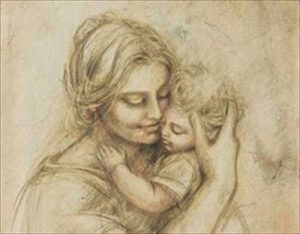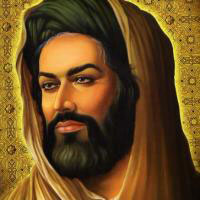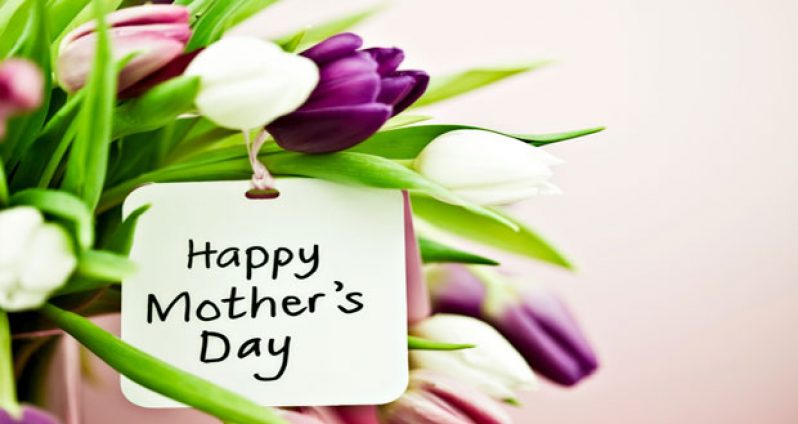PEOPLE know God as the Creator, the giver and sustainer of life as well as the protector of it on Earth and the supreme ruler of Earth and the Heavens. But who is God and where can he be found?
The sacred Hindu, Islamic and Christian texts shed light on these matters, and while they share some views in common, the all say explicitly that he who is not born, is without fault and is infinite is God.And for Him, there are different names, and each has a different version of the story of the Creator.
But still, there are some who even question His existence, while others live their entire lives seeking to know Him and obtain His realisation.
Sometimes the search is driven out of a natural calling or out of a reason to know. 
Both are ambitious in pursuit, but sometimes, it makes sense to appreciate what is closer to you first before seeking to get acquainted with the unknown, notwithstanding the welcoming bliss that sometimes awaits.
And here is where ‘mother’ is important as she can be seen as an earthly intervener between her children in the early part of their lives and the Creator.
No child knows about God unless his parents, and in most cases, his mother tells him so.
But who is a mother? We all know that she is the giver of life on this Earth; she is a sustainer of life; and a protector of her young. At least most mothers if not all of them. It would be therefore reasonable to say that mothers who possess the virtues of unconditional love, compassion, forgiveness, understanding, firmness of reason and are agents of change, are the ‘Mortal Gods on Earth’.
It is best summed up in the Irish proverb that says, “God could not be everywhere and therefore he made mothers.”
UNCHANGING IN LOVE
Like a blooming petal, where the Earth is her checkered garden, out of an abundance of love, she gives birth, nurturing her infant to adulthood, and remaining unchanging in her love, in spite of the vicissitudes hurled at her and her children in this uncertain journey calls life.
Bhishma, a feared and unparalleled warrior as told in the Mahabharata, an epic and popular Hindu text, said thusly of mother:
“Mother is the panacea for all kinds of calamities. The existence of the mother invests one with protection; the reverse deprives one of all protection. The man who, though divested of prosperity enters his house, uttering the words ‘O mother!’— has not to indulge in grief. Nor does decrepitude ever assail him. A person whose mother exist, even if he happens to possess of sons and

grandsons and even if he himself is a hundred years old, but in the eyes of his mother, he looks like a child who is two years of age. Whether the mother is able or disable, lean or robust, the son is always protected by the mother. No one else, according to the ordinance, is the son’s protector. Then does the son become old, then does he become stricken with grief, then does the world look empty in his eyes, when he becomes deprived of his mother. There is no shelter like a mother. There is no refuge like a mother. There is no one so dear as the mother. For having borne him in her womb, the mother is the son’s dhatri (Earth). For having been the chief cause of his birth, she is his janani (embodiment of love). For having nursed his young limbs, she called amva (invaluable sacrifice). For nursing and looking after the son she is called sura (shining light). The mother is one’s own body.”
And because they are part of our own bodies, they should be loved, honoured as respected as reminded in the Book of Proverbs 6:20-22.
“My son, keep your father’s commandment, and forsake not your mother’s teaching. Bind them on your heart always; tie them around your neck. When you walk, they will lead you; when you lie down; they will watch over you; and when you awake, they will talk with you.”
CANNOT BE REPAID
Another powerful example of the value of mother can be found in a story related about one of Prophet Muhammad’s companions, Abdullah Ibn Umar, who was also a great scholar of Islam.
It was related that Umar saw a Yemeni man performing Tawaf (circumambulating the Kabah) while carrying his mother on his back. The man said to Umar, “I am like a tame camel for her! I have carried her more than she carried me. Do you think I have paid her back, O Ibn Umar?” Umar replied: “No, not even one contraction.”

As noble as the Yemeni’s effort was, it was not viewed as enough to repay his mother for a single contraction that she went through for him, and shows in general how massively indebted we are to our mother since no monetary value can be placed on her sacrifices.
There is hardly any truth to the term “bad mother”, but there is certainty that a few negligent mothers do exist, and it is important that they adjust themselves to become positive role models to their children.
This entails them leading by example, setting good standards for their children, instilling proper values in them and working with them to become peaceful, upright and meaningful contributors to society.
To do this, one does not have to be rich or poor, but determined to get the best out of their children.
A good mother is always alert and un-contaminating, and as Israeli-American novelist and essayist Ayelet Waldman said: “A good mother remembers to serve fruit at breakfast, is always cheerful and never yells and manages not to project her own neuroses and inadequacies onto her children.”
In short, a good mother is not only a reservoir of love, but is also a temple of divinity, and her children should see godliness in her.
By Tajeram Mohabir
‘Mother is the name for God in the lips and hearts of little children’ – William Makepeace Thackeray
‘God could not be everywhere, and therefore he made mothers’- Rudyard Kipling



.jpg)











